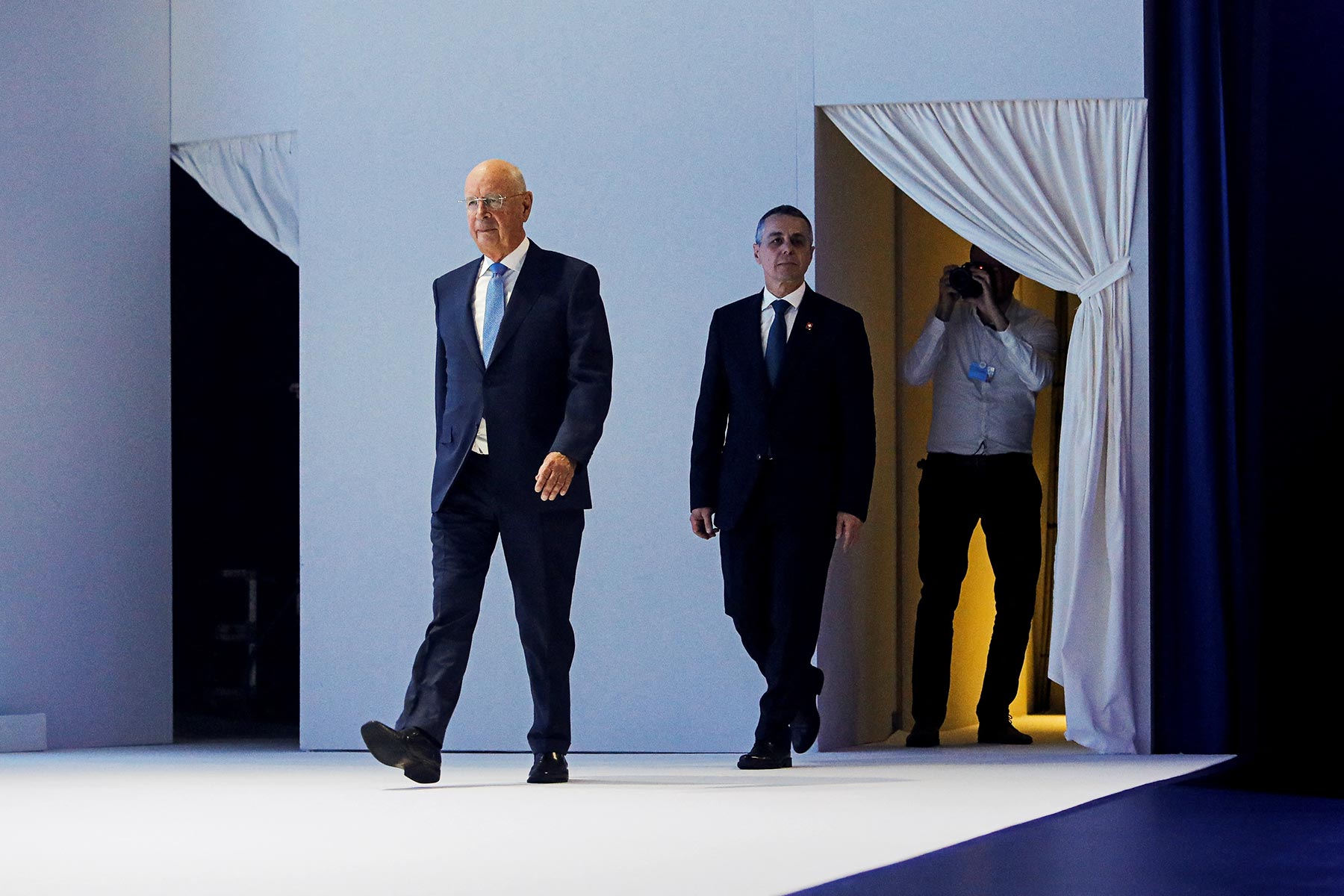
The World Economic Forum may be returning to its long-standing ritual of meeting in Davos, Switzerland, in January, but—even as the pandemic ebbs—this is still a time of remarkable upheaval. WEF founder Klaus Schwab sat down in New York City with TIME’s editor-in-chief Edward Felsenthal to discuss what’s ahead for Davos and the global economy.
A couple of times when we’ve had these conversations, I’ve asked you about what the impact of a real economic downturn might be on the tension between stakeholders and shareholders. And here we are, with the economy facing some real headwinds. Do you see any retreat from the movement toward stakeholder capitalism?
I think it’s the wrong approach, from the beginning on, to create a choice between shareholder capitalism vs. stakeholder capitalism. The company is not just an economic unit: it’s a social organism, which has to play its role inside society. This generation expects from a company not just to serve shareholders, but to take care of people and the planet. The company who keeps this in mind will have much better talent in the future and will have much higher attractivity with its customers.
But there is some tension. You can’t fully take care of your people if you’re laying off 13,000 workers.
No, in your practical decisions as a CEO, you have to make compromises. At a certain moment, the balance may shift more to the short term—which is to emphasize, let’s say, the profitability of the company. And other times it may shift more to the long term.
There aren’t many people in the world who talk regularly to as many CEOs and world leaders as you do. What are you hearing and feeling about the economic outlook for ’23?
I wouldn’t relate it only to ’23. We are in a restructuring of the global economy. When you have a restructuring in a company, you write off the costs on your balance sheet, and shareholders are suffering and sometimes employees have to go. But when you have a restructuring of an economy, it bites into the purchasing power of the people. We should not look at the global economy with a crisis mindset and a short-term approach. We have to manage in a strategic way this transformation period, which may last three, four, five years and will be socially very painful.
The company is not just an economic unit: it's a social organism.
You made the unprecedented decision last year to ban Russia from Davos.
We immediately followed the global sanction policies, so we froze all our relationships with Russia.
And that continues?
That continues.
The first time I came into contact with the crypto world at all was at Davos. After the collapse of FTX and the broader challenges over the past four or five months, what do you make of that market?
I’m a big fan of new technologies, so we [at the World Economic Forum] were always very engaged in the development of crypto. But it’s a fact that technological development is so complex and so fast, that sometimes it’s very difficult for political [institutions] to comprehend the significance of a certain new development, and even more difficult to create the necessary boundaries around it. So I’m not surprised about what happened. Crypto will remain. But now we have to make sure crypto is integrated into, or at least made congruent with, our traditional systems.
Now you’re working on bringing the World Economic Forum into the metaverse.
A year ago, when Meta had changed its name, I became curious what [the metaverse] is and could it have an impact, as you did with crypto. So I asked many people, What does it really mean? Everybody gave to me a different answer. And for me, it became very clear: it’s the capability to meet in a virtual three-dimensional room. I mean, you have two levels. First is just to meet around a table with your avatars. And second, is to combine it with an immersive experience—and that’s what we will do in Davos.
We will showcase in Davos what we call the Global Collaboration Village and inaugurate it in the summer next year. This has such an importance because it can make global collaboration more open; you always can convene the most relevant and the most knowledgeable people. And second, it makes it more sustained, because you can work together on a continued basis, and not just come together for a physical meeting and then nothing happens for quite some time again. We created a community, which has at the moment 70 members, whom we call Village Partners, who support us. [Salesforce, whose chair and CEO is TIME’s co-owner Marc Benioff, is a Village Partner.] I feel this could be a game changer in global collaboration.
What brings you optimism in this challenging time?
I’m always an optimist—and if I tend to become a pessimist, I just think of my mentor Shimon Peres, who explained in Davos once the difference between optimists and pessimists: both, in principle, have the same lives, but optimists have a much happier life. This situation which we are in now is not the worst of all the times. It’s a bad one. But at the end, change is what’s happening. We can manage change.
This interview has been edited for length and clarity
More Must-Reads from TIME
- Cybersecurity Experts Are Sounding the Alarm on DOGE
- Meet the 2025 Women of the Year
- The Harsh Truth About Disability Inclusion
- Why Do More Young Adults Have Cancer?
- Colman Domingo Leads With Radical Love
- How to Get Better at Doing Things Alone
- Michelle Zauner Stares Down the Darkness
Contact us at letters@time.com